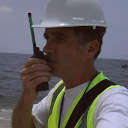HUD CDBG-DR Grants North Carolina
HUD CDBG-DR Grants North Carolina information page.
By Murray Wennerlund, published on updated on .
State of North Carolina
- 2024
- DR-4827
- Public Law 118-158
- Grant Program Website
- Grant Program Website
- Master Action Plan: Public Comment Period - February 18, 2025 ending March 20, 2025.
- Public Comment Suggestions:
- NC Master Action Plan for the HUD CDBG-DR program is here.
- Fill out the online survey form
- Mail your comments to: North Carolina Department of Commerce 4346 Mail Service Center Raleigh, NC 27699-4346 Attention: CDBG-DR Public Comment
- Fax your comments to: (919) 715-0096
- Email your comments to: helene.recovery@commerce.nc.gov
- Action Plan Amendments:
- Public Comment Suggestions:
- Contact Information:
- Unmet needs: $119,285,000
- Mitigation: $17,893,000
- Total allocated: $137,178,000
Ashville, North Carolina
- 2024
- DR-4827
- Grant Program Website
- Grant Program Website
- Unmet needs: $195,661,000
- Mitigation: $29,349,000
- Total allocated: $225,010,000
FEMA reported the following Major Disasters between 2020-2024:
- North Carolina Potential Tropical Cyclone Eight (DR-4837-NC) Incident Period: September 16, 2024 - September 20, 2024
- North Carolina Tropical Storm Helene (DR-4827-NC) Incident Period: September 25, 2024 - December 18, 2024
- North Carolina Remnants of Tropical Storm Fred (DR-4617-NC) Incident Period: August 16, 2021 - August 18, 2021
- North Carolina Tropical Storm Eta (DR-4588-NC) Incident Period: November 12, 2020 - November 15, 2020
- North Carolina Hurricane Isaias (DR-4568-NC) Incident Period: July 31, 2020 - August 4, 2020
- North Carolina Severe Storms, Tornadoes, and Flooding (DR-4543-NC) Incident Period: February 6, 2020 - February 19, 2020
Federal Register Published Notices: Allocations for Community Development Block Grant Disaster Recovery and Implementation of the CDBG-DR Consolidated Waivers and Alternative Requirements Notice (UN AAN)
Additional Resources
North Carolina Grant Program Website
Oversight, Obscurity, Transparency
Oversight: HUD OIG
Obscurity: 3
Search: North Carolina Disaster Recovery HUD CDBG-DR Unmet needs
For the most accurate and up-to-date information, visit the official website or contact the department directly.
Social Media News Release
Published to Reddit:
North Carolina Disaster Recovery Master Action Plan Public Comment Period - February 18, 2025 ending March 20, 2025.
North Carolina Disaster Recovery Master Action Plan
6.1.2 Public Comments
NCDOC takes seriously the need to collect and evaluate public comments offered on the draft Action Plan and subsequent amendments. The collected comments and responses are included at the end of the section of the Action Plan, following section 6.1.5.
NC Master Action Plan for the HUD CDBG-DR program is here.
Announcement of Published Master Action Plan is here.
Several options are available for submitting comments about the state’s proposed CDBG-DR HUD Action Plan.
- Fill out the online survey form
- Mail your comments to: North Carolina Department of Commerce 4346 Mail Service Center Raleigh, NC 27699-4346 Attention: CDBG-DR Public Comment
- Fax your comments to: (919) 715-0096
- Email your comments to: helene.recovery@commerce.nc.gov
- Attend an in-person meeting in your area. See the schedule in the next section.
North Carolina Hurricane Helene CDBG-DR page which is different and updated from the links above here.
Public Comment Suggestions:
- Substantial Change Threshold: North Carolina claims that any program with an allocation under $28 million (2% of funds) is not subject to public comment requirements. In my experience here in Louisiana, lowering this threshold fosters greater transparency and encourages public discussion.
- Interactive Action Plans: Most states publish executive orders from the Governor’s Office that lack provisions for meaningful dialogue with disaster victims. The HUD Public Comment period exists to ensure that proposed programs align with the best interests of grant recipients. However, many states prioritize closing out grants rather than addressing survivors’ concerns. Speaking from personal experience as a household that took eight years to recover from a flood, I can tell you that the lack of two-way communication often leaves our needs unrepresented. Therefore, it’s essential to advocate for public appeals policies and ensure that exceptions boards are open for public review. Waivers and exceptions often benefit select households; knowing what waivers and exceptions are granted can help others access similar opportunities.
- Mortgage and Renters Assistance Programs: These programs, offered by HUD from day one of a disaster or included in Federal Register Notices, provide Fair Market Rent payments for up to 22 months or $60,000, whichever comes first. These funds can cover rents or mortgages and are essential for helping families move out of campers or tents and into rental homes. This straightforward program should be prioritized by the state to ease the burden on disaster-affected households.
- Duplication of Benefits (DOB): Addressing DOB issues can be challenging since disaster recovery needs differ greatly among households. For example, FEMA’s Individual Assistance Program (IHP) grants for household repairs might have been misused because homeowners were unaware of the restrictions. A state program could offer a loan option to help households repay misused FEMA funds at market rates. It’s critical to advocate for programs that create opportunities for households with unmet needs, especially those facing DOB-related challenges.

